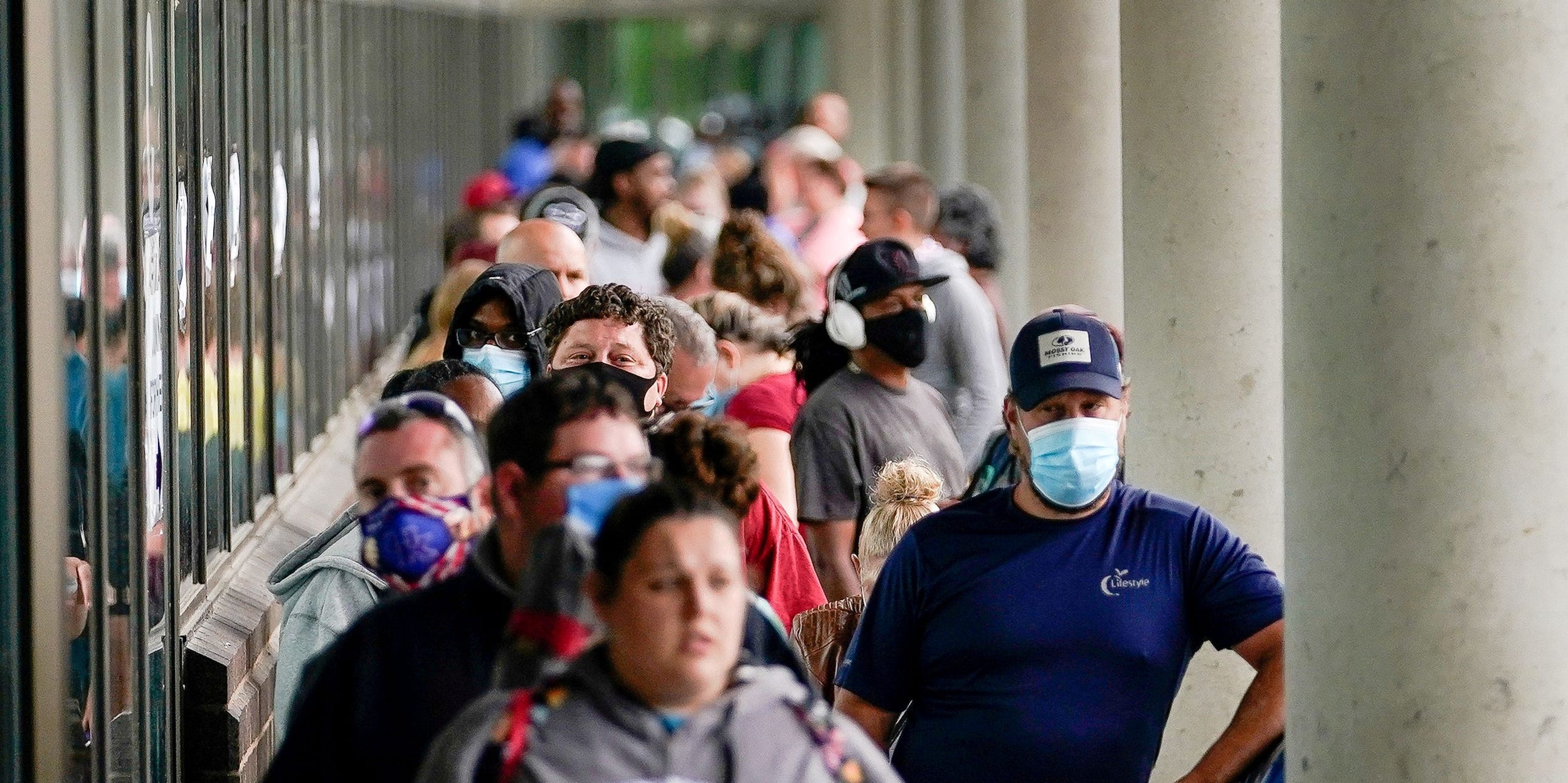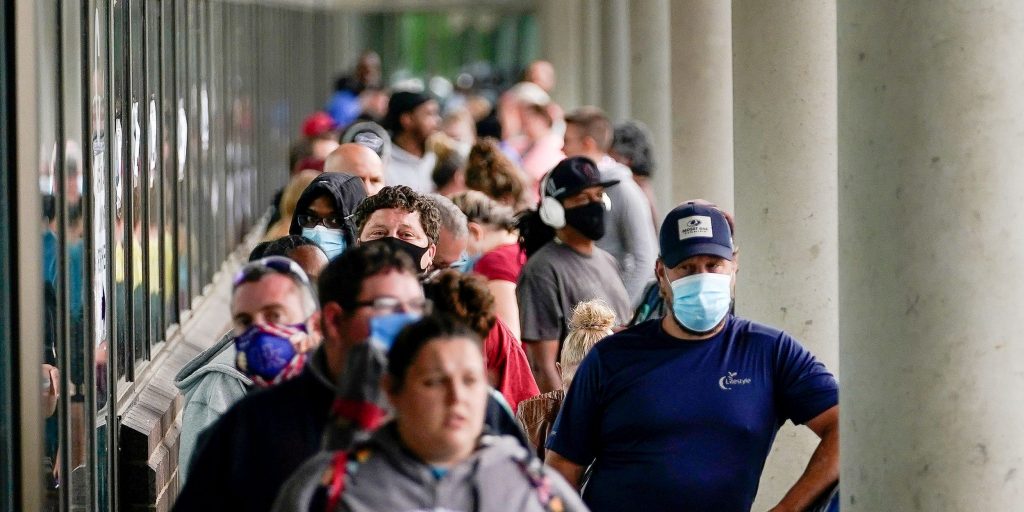
- Weekly jobless claims rose to 222,000 last week, rising above the previous week's 52-year low.
- Economists expected claims to jump to 240,000 after marking a full pandemic recovery the week prior.
- Continuing claims dropped to 1.96 million for the week that ended November 20, also beating estimates.
More Americans filed for unemployment insurance last week, placing claims back above pre-crisis levels, if only very slightly.
Jobless claims rose to 222,000 last week, the Labor Department said Thursday. That came in below the median forecast of 240,000 claims from economists surveyed by Bloomberg. The print marked the largest uptick since July but was still the second-lowest read of the year.
The previous week's 52-year low total was revised even further downward, to 194,000 from 199,000. The initial print showed claims plunging to the lowest level since 1969 and completing a recovery to pre-pandemic lows.
Continuing claims — which track people filing for continuous UI support — dropped to 1.96 million for the week that ended November 20. Economists forecasted a decline to 2 million claims. The reading sets a new pandemic-era low and the first time since early 2020 that continuing claims landed below 2 million.
The print underscores the progress left in the labor market's recovery. Both initial and continuing claims steadily declined through the fall as hiring accelerated. Though initial claims touched pre-COVID lows, continuing claims still need to fall by roughly 200,000 to mark a full recovery.
Data out Wednesday suggests the jobs recovery held strong through November. The US added 534,000 private-sector payrolls last month, according to ADP's monthly employment report. That beat the median forecast for a 525,000-payroll gain, though it also marked a slight slowdown from the job creation seen in October.
The government's upcoming jobs report is expected to be even more positive. Economists forecast the US created 550,000 nonfarm payrolls in November, a small improvement from the 531,000 added the month prior. The unemployment rate is expected to drop to 4.5% from 4.6%, bringing it within one percentage point of the record low seen in early 2020.
It's likely the November hiring data is the last before the Omicron variant affects the recovery. The first US case of the variant was discovered in California on Wednesday, sparking new concern of lockdowns. Stocks swiftly reversed gains andplunged in Wednesday trading as investors braced for a slowed recovery.
To be sure, there's still much to learn about Omicron's infectiousness and whether vaccines protect against it. But if its spread resembles the Delta wave, Americans can expect a notable slowdown in the path to a complete economic rebound.
